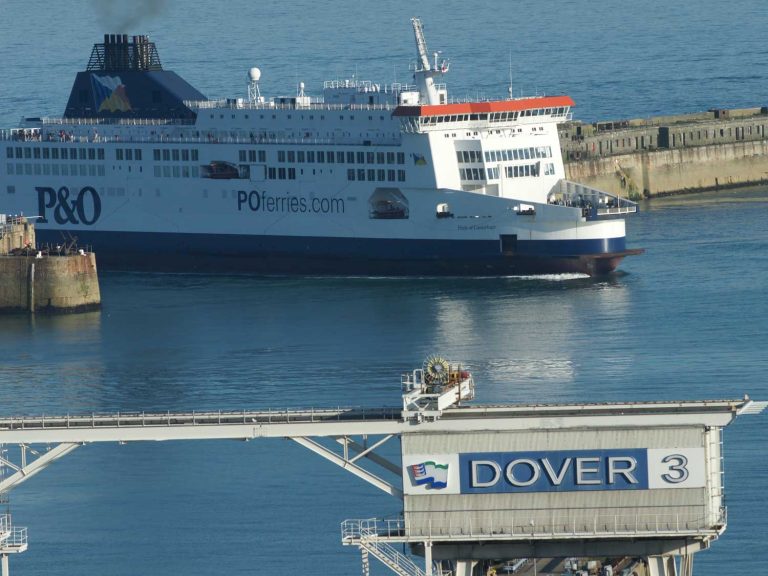
Date:
P&O inadvertently slash European Channel capacity
Freight services between the UK and Europe continue to face suspension after P&O Ferries’ Dubai-based owner, DP World laid off 800 workers last week, amid a controversial restructuring exercise. There are consequences in overland supply chains that had not been considered by most.
After announcing the immediate redundancy of 800 workers exactly a week ago, P&O said that its cross-Channel operations would be suspended “for a few days”. Today, services remain suspended between Dover and Calais, Cairnryan and Larne and Hull and Rotterdam, leaving many cross-Channel shippers few, if any, options, other than to wait for the ferry company to resume operations.
P&O linked the mass firings to the financial losses it has sustained in recent years (£100 million in 2021) and the assumption, which seems borne out by press reports, is that the agency-sourced replacement workforce will come more cheaply.
P&O Ferries carry 30% of cross-Channel trade, so any dispute that stops them operating removes a massive amount of critical capacity and will quickly lead to significant disruption.
The firing of staff with no notice has sent shockwaves through supply chains, the public and government and is showing no immediate signs of receding, which means service suspensions could be prolonged.
The company operates a fleet of 21 vessels across 11 ports and accounts for 30% of the freight crossing the English Channel. It carries half the road trailers that pass through Dover every year and while vehicle volumes have declined 24% over the past five years, a total of 2.1 million trucks still used Dover in 2021.
The suspension of P&O’s services is yet another level of supply chain disruption for European transport operations that are already dealing with changing Brexit regulations, new UK border processes, port congestion and the continuing shortage of truck drivers.
P&O’s actions have removed a significant amount of capacity from the market and finding alternative sailings or Channel tunnel services – from carriers that don’t have the capacity to soak up all P&O’svolumes – will be very time consuming and challenging for teams that are already under extreme pressure.
Operations appear to be coping currently, but if P&O’s service suspensions persist, it is inevitable that the diversion of massive volumes to other carriers, primarily DFDS and Eurotunnel, will lead to congestion at the ports and delays in crossings for all users.
Metro has significant resource and capability focused on our customers’s European supply chains, to ensure that they continue to operate effectively, despite the challenges of P&O’s service suspensions.
Our bespoke technology gives our customers supply chain visibility, of orders in transit, and our dedicated European team work closely with Eurotunnel and RoRo carriers in the primary short-sea ports including Calais, Rotterdam and Zeebrugge.
Since Brexit we have seen a reluctance of drivers to come to the UK and have consequently increased the number of vehicles carried on unaccompanied RoRo vessels, instead of road freight, favouring quieter regional ports with lots of spare capacity, including Bristol, Southampton and Tilbury to/from Zeebrugge, Antwerp and LeHavre.
To assess your situation and ensure your European traffic keeps moving, please contact us today and we will advise alternative routes to market throughout Europe. We have a huge overland operation, within our group of logistics businesses, that are delivering throughout the continent and will continue to be agile, regardless of events.
If you ship to/from Europe and need reliability and consistently cost-effective solutions, please contact Chris Carlile or Lewis White for a full review.
